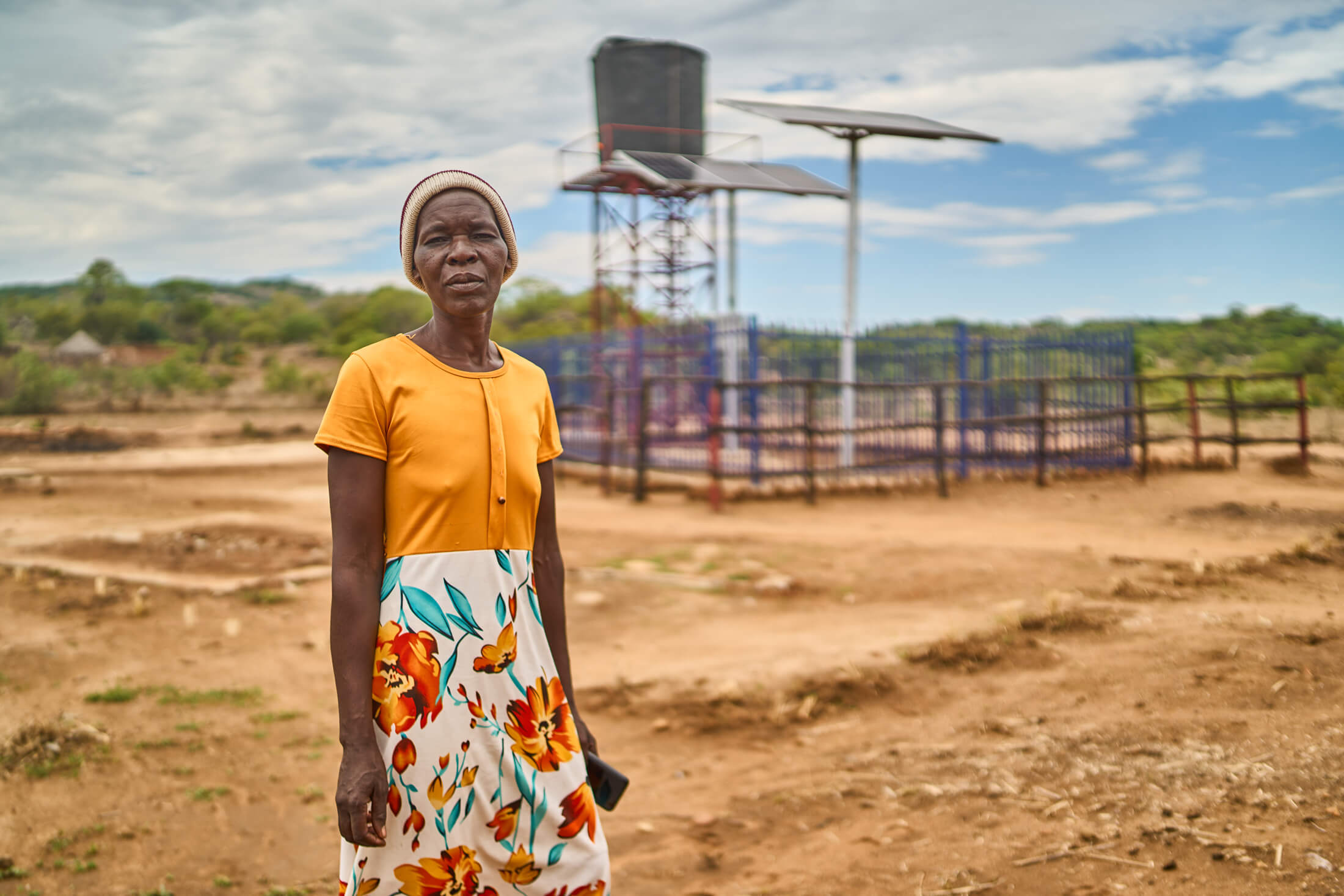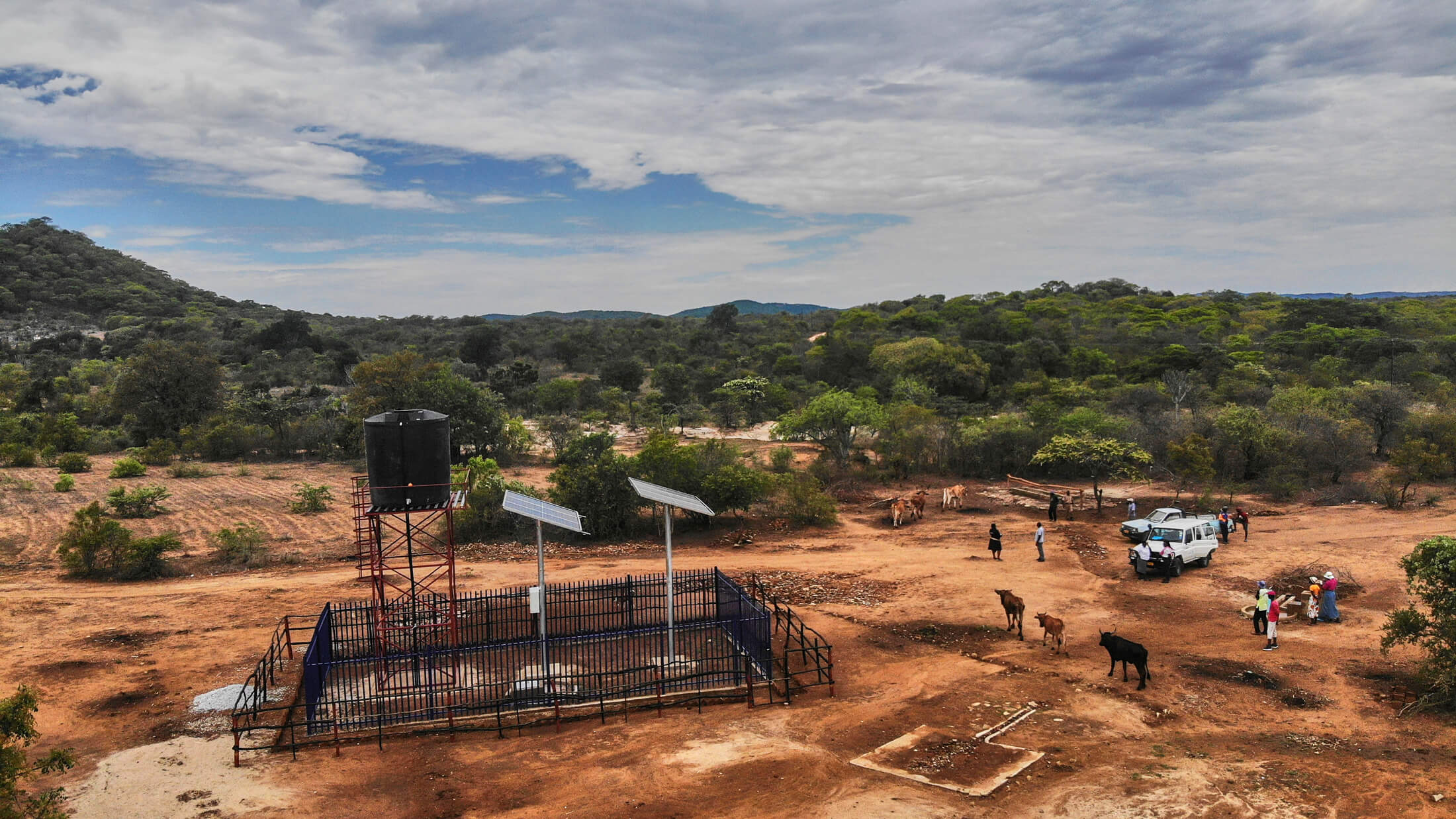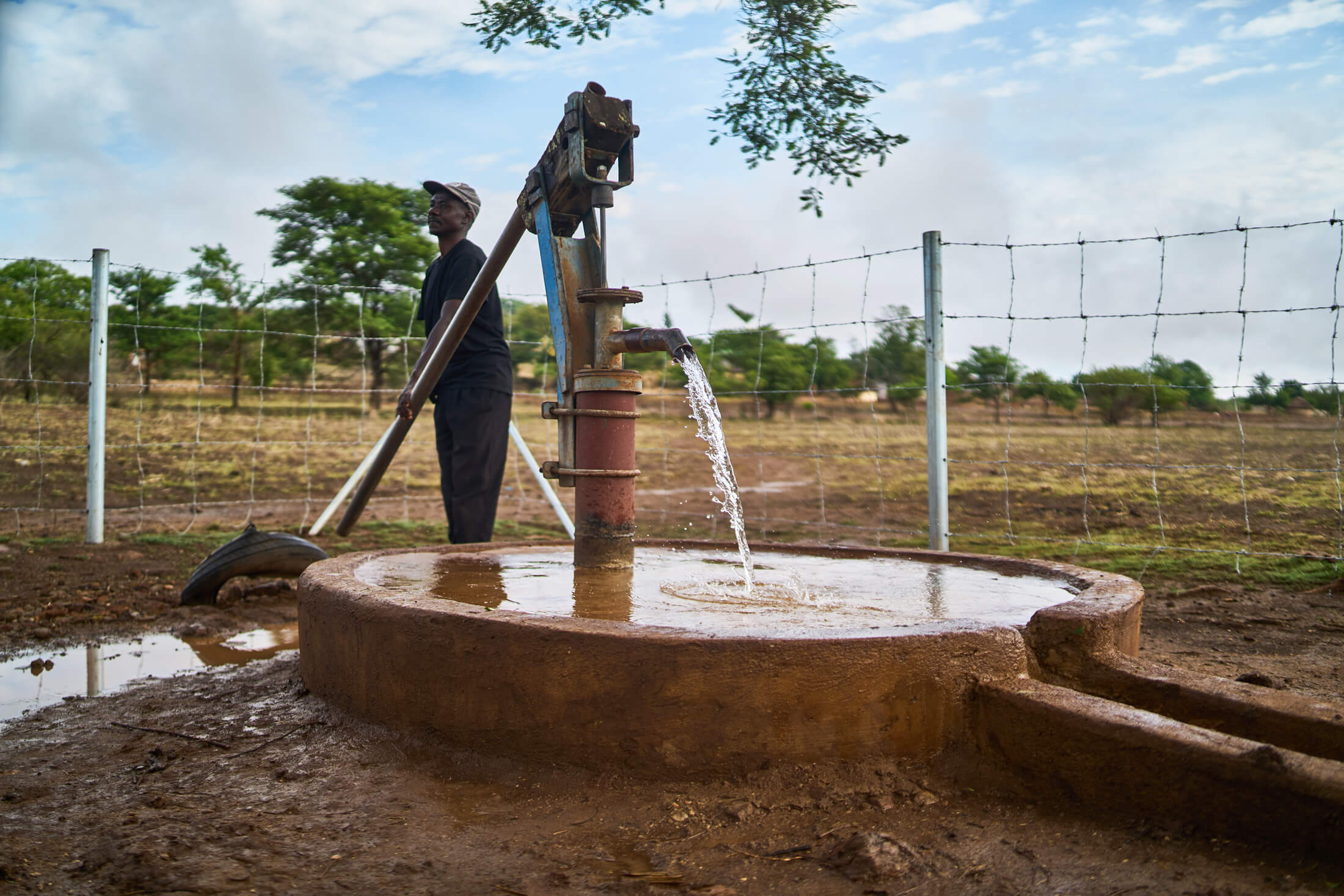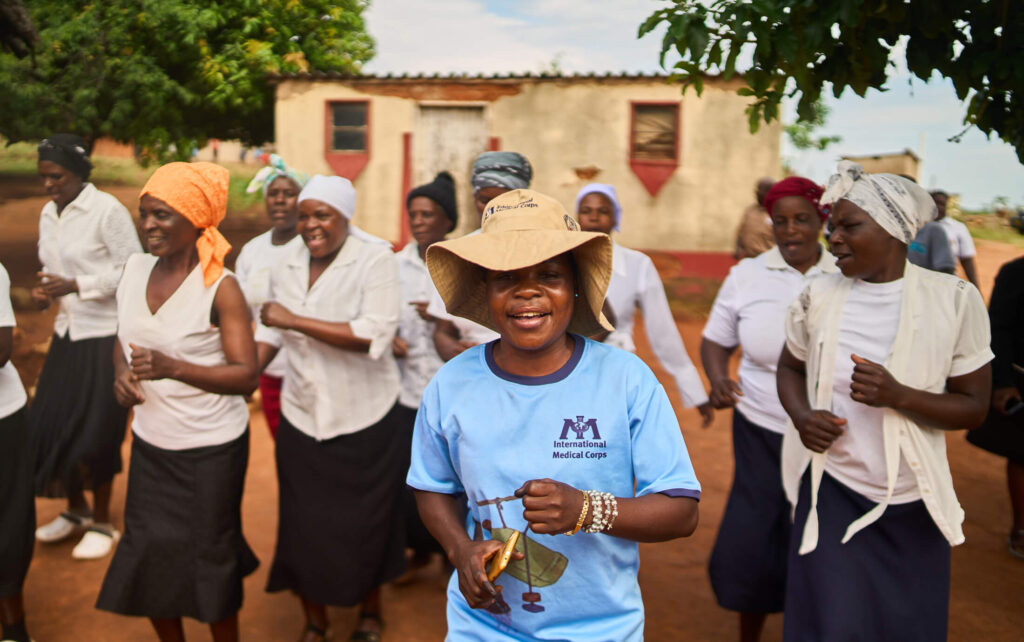In rural Zimbabwe, women and girls are the primary water collectors. Before our team made improvements to water access and infrastructure in several villages there, this responsibility was so time-consuming that school-age girls missed 10 to 15 school days per year.
Suan Kupuka, who now chairs her local water committee, describes life in her Bikita district village before the completion of her local water project: “Life in our village was an unrelenting struggle. Our children bore the heaviest burden. By the time they returned with water, exhaustion had drained them, leaving them hollow-eyed and limp, with their homework untouched. How could they learn? How could they dream? The water jars they carried on their heads held more than just water—they bore the weight of lost potential.”

Today, thanks to our Zimbabwe team’s water projects, more than 3,700 people in Chikohora, Nyamayevhu and Pakatai villages have local access to water at nearby pumps. “Even those who once struggled the most—such as the elderly and disabled—can now collect water safely from the taps,” says another community member. “This improvement isn’t just about convenience. It’s about restoring our dignity.”
In Pakatai, where our team constructed the community’s first borehole, the new development provided both access to water and a sense of self-determination. “The assistance came at the right time, when our community needed the precious resource,” says village leader Charles Mugombwi. “For generations, our people struggled to access water. Today, we celebrate our first borehole. Now hundreds will benefit from clean, accessible water. There is no fear of waterborne diseases, no fear of night travels, since the water source is accessible.”

The International Medical Corps team also trained the seven-member Pakatai Water Point Committee to manage and maintain their water source, as well as training two pump caretakers to take ownership of their water infrastructure through water source management and maintenance.
Similarly, in Bikita’s Nyamayevhu village, local leadership expressed their happiness to have new water infrastructure of their own. Although our team helped establish their water management committee, local health clubs, policies and community feedback mechanism, the residents now have complete ownership of the infrastructure and its maintenance. “We were all involved as a community in every step of the process—from the traditional rituals to the construction of the piped water scheme,” says local leader Gladys Mutsvutsvururu. “It’s our project. We believe our ancestors blessed it, and we’re proud of it.”

“Before the installation of the piped water system, most of our daily time was consumed by the gruelling walk to fetch water, 2 kilometres each way,” one Nyamayevhu village resident says. They would walk this distance “only to drink from contaminated sources that caused illness and wasted time. Now, with the new solar-powered borehole, clean water is readily available, giving us back valuable hours for work, school and enjoying life.”
To keep up to date on International Medical Corps’ work to help communities around the world, sign up for our email list.
